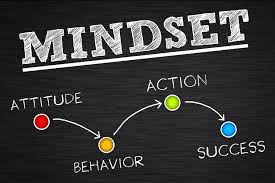Professional certifications can help individuals improve their knowledge of specific topics and grow their skills. However, understanding which are most beneficial for career advancement can be confusing. In this article, we will define the various certifications to help you make better decisions about your career development.
Vocational education prepares individuals to utilize a specific skill set to perform or grow knowledge in a specific subject area or industry. However, not all vocational programs are equal. Employers may look for credentials to prove that a candidate has the skills to do the job. In addition, the government often requires licenses for certain occupations to certify their skills and to protect public safety. Therefore, individuals may seek specific designations to improve their credentials s and competence to employers and clients.
Certificate
The completion of a certificate program is often simply a certificate of completion. This type of coursework is professional development and signals a commitment to learning and professional improvement. Certificate programs include those offered as a “Grad-certificate,” which requires the completion of 4-5 graduate-level courses. It also has shorter courses on various topics ranging from Diversity, Equity, and Inclusion to Rehabilitation and Addiction. This type of coursework is quite accessible and offers easy access to personal and professional growth through plenty of online resources.
Certification
Certifications show your commitment to your profession. They demonstrate your commitment to learning and the desire to achieve. If you are in career transition or looking to move up the ranks, this type of training can be particularly desirable to employers. Additionally, your certification can help you improve earning potential, on-on-the-job efficiency through new knowledge and skills, and a competitive advantage over others seeking the same position. Certifications like Project Management Professional (PMP) and Professional in Human Resources (PHR) are common certifications that have become standards in their respective industries. How to earn one will vary on your previous education and experience. Professional organizations often govern them. These organizations are setting the standard for professional excellence in their fields.
License
Careers like real estate, truck driving, cosmetology, and teaching require a license. Before earning the license, a candidate must complete the required coursework or hours of training. Once the educational requirements are met, the candidate will sit for an exam. Once the exam has been completed successfully, they will be licensed. These standards can vary by state.
As a note, individuals in many occupations must complete board exams once their academic programs have been completed. This includes careers like nursing, counseling, and physical therapy, to name a few. The most famous is the Bar Exam you take upon completion of law school.
Professional Designation
This classification is broad and overlays the varieties covered thus far. You can receive a professional designation after completing a certification program like a certified physical trainer (CPT) or certified nursing assistant (CNA), after completing a bachelor’s degree like a certified public accountant (CPA), or after several years of post-baccalaureate education like a medical doctor (MD).
This AthLife Fundamental was powered by:
Indeed Editorial Team, “10 In-Demand Career Certifications (And How To Achieve Them)”, March 10, 2023



